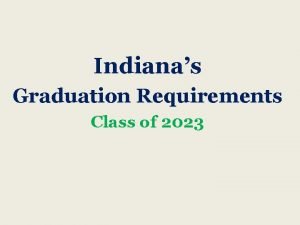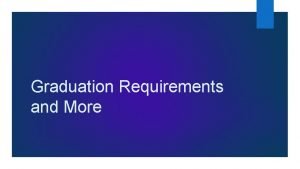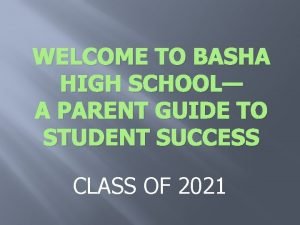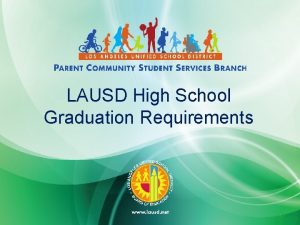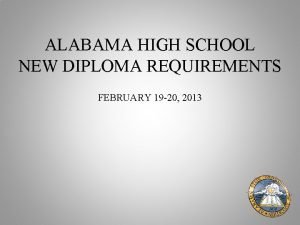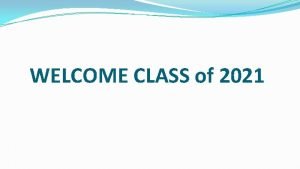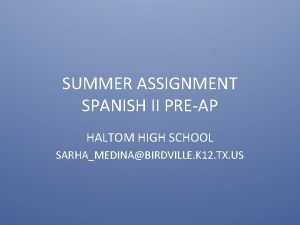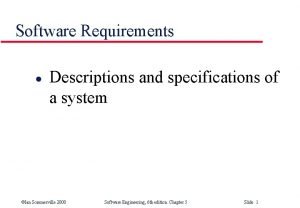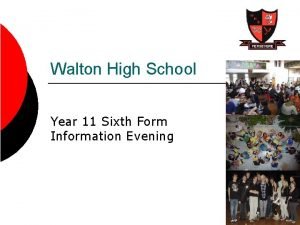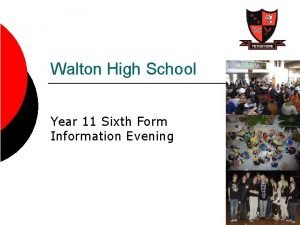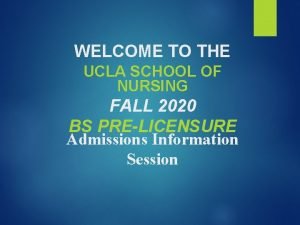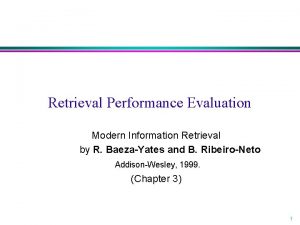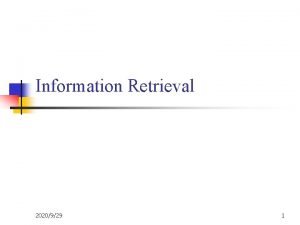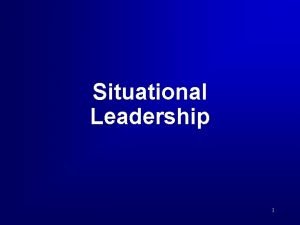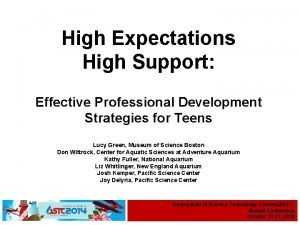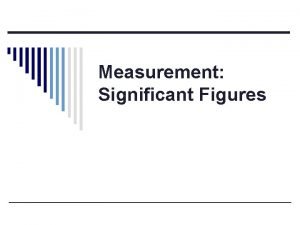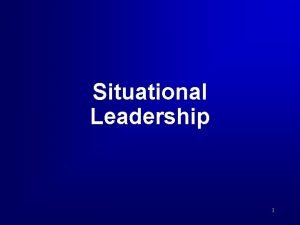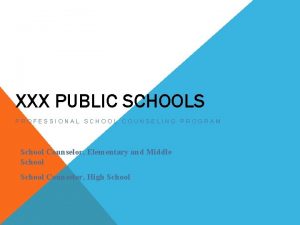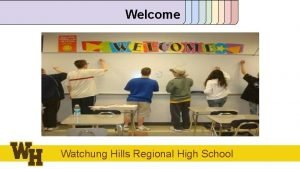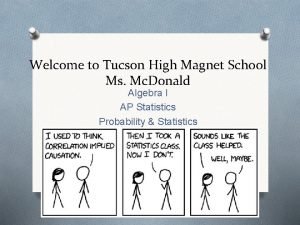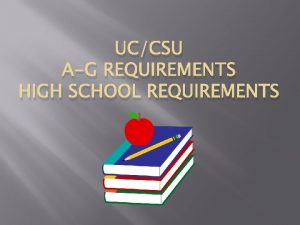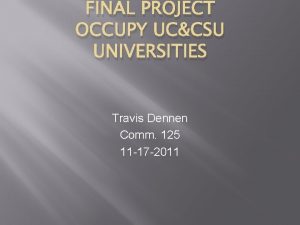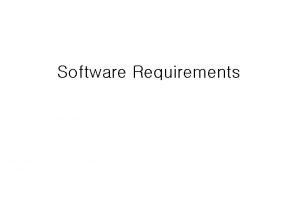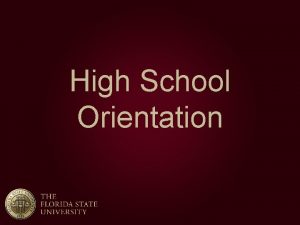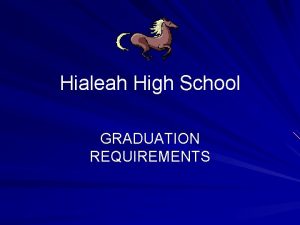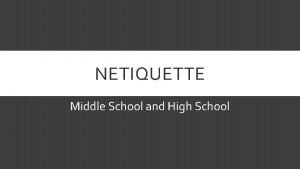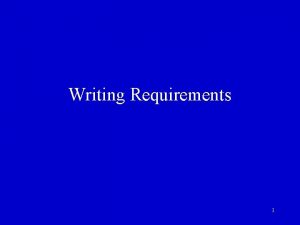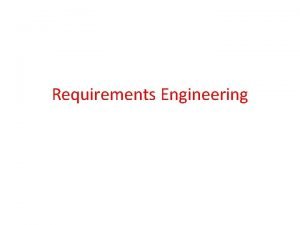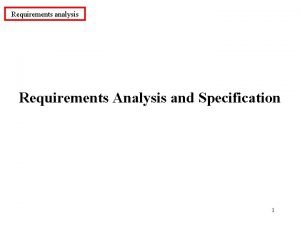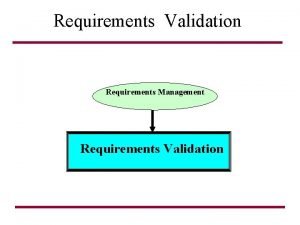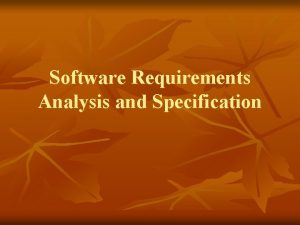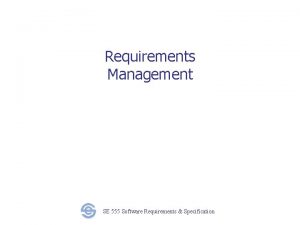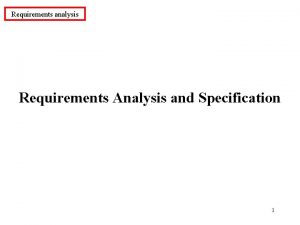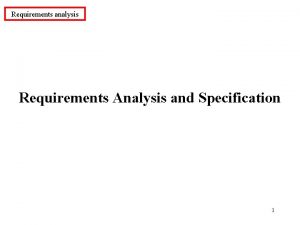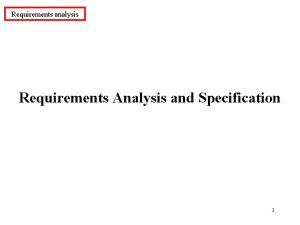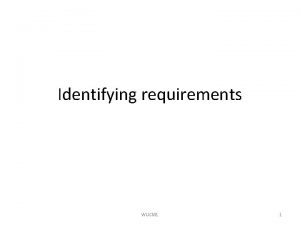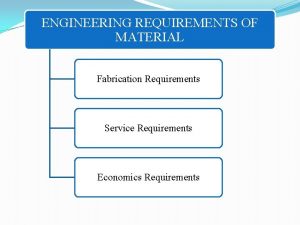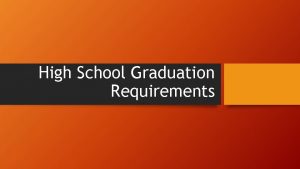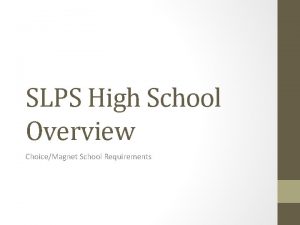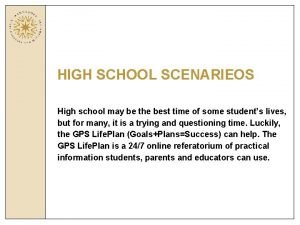UCCSU AG REQUIREMENTS HIGH SCHOOL REQUIREMENTS High School































- Slides: 31

UC/CSU A-G REQUIREMENTS HIGH SCHOOL REQUIREMENTS

High School Grad Requirements � Social Studies 3 years English 4 years Math (inc. Algebra) 2 years Science 2 years Language other than English/ Art/CTE 1 year PE Electives 2 years remaining 70 credits

English Requirement English (4 years required) � � � Four years of College Preparatory English 1 English III English IV

History What is requirement History/ Social Science (3 years required) � Two years of history/ social science � One year World History year U. S. History or Half year of Economics and one half year of American Government

What is requirement for Mathematics (2 years required) � � Algebra I Geometry Algebra II Pre- Calculus / Calculus

Science requirement “d” Science (2 years required one Physical and one biological Science) Physical Science � Ag Earth Chemistry Physics � � Biological Science Life Science Biology Ag Biology

Language/Arts & CTE Requirements World Lang/V&P/CTE(1 year required) • Band • Drama • Choir • Art • Spanish/French • Any CTE course offered

Elective requirements (70 Credits required) Examples include • Foreign Language • Speech & Debate • Floriculture • Careers in Education

What are A-G Courses? � � A minimum of 15 courses in different subject areas You must complete all of these courses to be eligible to get into a Cal State and UC school http: //www. calstate. edu/ http: //www. universityofcalifornia. edu

ENGLISH � English (“b”) – Four years of college preparatory English that integrates reading of classic and modern literature, frequent and regular writing, and practice listening and speaking.

History/Social Science � History/social science (“a”) – Two years, including one year of world history, cultures and historical geography and one year of U. S. history, or one-half year of U. S. history and one-half year of American government or civics.

Mathematics � � Mathematics (“c”) – Three years of collegepreparatory mathematics that include or integrate the topics covered in elementary and advanced algebra and two and threedimensional geometry. E. g. Algebra II, Pre-Cal, Calculus

Science � Laboratory science (“d”) – Two years of laboratory science providing fundamental knowledge in at least two of the three disciplines of biology, chemistry and physics.

Language other than English � Language other than English (“e”) – Two years of the same language other than English or equivalent to the second level of high school instruction

Visual & Performing Arts � Visual and performing arts (“f”) – One year chosen from dance, music, theater or the visual arts.

College Preparatory Elective � College-preparatory elective (“g”) – One year chosen from the “a-f” courses beyond those used to satisfy the requirements above, or courses that have been approved solely in the elective area

How can you find out what you have on your Transcript � Talk to your counselor to review your transcript each semester

Post-Secondary Options m m Co y t i un Co am r g o r P d ze i l cia e p S e g e ll 4 -y ea r. C lita oll e ge /U Jo b. C Work/Career Mi orp s ry niv ers i ty

College Testing

Why the PSAT � � � Offers Scholarship Opportunities Entry into the National Merit Scholarship Program, conducted by National Merit Scholarship Corporation (Only 11 th grade) The National Hispanic Recognition Program (NHRP) identifies outstanding 11 th-grade Hispanic/Latino students and shares information about them with interested colleges and universities. Must meet a minimum PSAT/NMSQT score and grade point average.

� 320 to 1520 on the PSAT/NMSQT and PSAT 10

SAT About the SAT The SAT is offered at least seven times each year in the U. S. and six times internationally. It is offered in October, November, December, January, March (U. S. only; SAT only), May and June. Learn more about the SAT. • When to Take the SAT Most students take the SAT during their junior or senior year of high school. At least half of all students take the SAT twice — in the spring as a junior and in the fall as a senior. Most students improve their score the second time they take the SAT. Learn more about when to take the SAT

NEW SAT Words in Context The redesigned assessments will focus on relevant words, not obscure vocabulary, that students will use in college and beyond. Command of Evidence The redesigned assessments will ask students to demonstrate their ability to interpret, synthesize, and use evidence found in a wide range of sources. Essay Analyzing a Source The redesigned SAT Essay, which will be optional, will more closely mirror college writing assignments. Students will read a passage and explain how the author builds an argument to persuade an audience. Math That Matters Most The tests will focus on three essential areas of math: Problem Solving and Data Analysis; the Heart of Algebra; and Passport to Advanced Math.

Cont. NEW SAT Problems Grounded in Real-World Contexts Throughout the redesigned assessments, students will engage with questions grounded in the real world and directly related to the work performed in college and career. Analysis in Science and in History/Social Studies Students will apply their reading, writing, language, and math skills to solve problems in a broad array of contexts. U. S. Founding Documents and the Great Global Conversation Every time students take one of the redesigned assessments, they will encounter a passage from a founding document or a text from the ongoing global conversation about freedom, justice, and human dignity. No Penalty for Guessing The redesigned assessments will remove the penalty for wrong answers. Students will earn points for the questions they answer correctly

SAT New SAT 400 -1600 3 hours 50 minutes No guessing penalty 4 multiple choice rather than 5 Reading (65 minutes): non-fiction - Passage topics are primarily science, humanities, social studies. Language and Writing (35 minutes) Math (25 minutes without calculator) (55 minutes with calculator) – More reading involved Essay – 50 minutes – Analyze 650 -750 word document and explain how the author builds an argument Now analytical and not Persuasive opinion

ACT English 75 questions 45 minutes Measures standard written English and rhetorical skills. Mathematics 60 questions 60 minutes Measures mathematical skills students have typically acquired in courses taken up to the beginning of grade 12. Reading 40 questions 35 minutes Measures reading comprehension. Science 40 questions 35 minutes Measures the interpretation, analysis, evaluation, reasoning, and problem-solving skills required in the natural sciences. Optional Writing Test 1 prompt 40 minutes Measures writing skills emphasized in high school English classes and in entry-level college composition courses.

Resources Improves Teaching and Learning - helps educators identify skill gaps and improve instruction. Extensive data and reporting resources are offered through an online score reporting portal, The online Student Data File allows educators to manage student data outside of the Score reporting portal. • Links to Free, Personalized SAT Practice Through Khan Academy®. If students link their College Board and Khan Academy accounts, they’ll receive SAT practice recommendations based on their performance on the PSAT/NMSQT, PSAT 10, and PSAT 8/9. • Identifies Skills for Improvement. The score report gives students comprehensive feedback on their test performance, allowing them to see which questions they answered incorrectly and which academic skills they should focus on.

College Board Resources Supports College and Career Planning Through My. Road™ and Big. Future™. • My. Road™ offers a personality profiler, to help students self-explore majors and careers. • Big. Future™ helps students further explore majors and find colleges that are right for them. • Encourages Students to Challenge Themselves. Once in high school, students get personalized SA recommendations through Khan Academy and see their AP® potential for 20+

Participate in extracurricular activities Explore your interest in a sport, school club, music or drama group, or community volunteer activity. Colleges would rather see involvement in one activity instead of loose connection to several.

Meet with your counselor Update your 4 year-year academic plan with counselor. Discuss challenges in coursework and possible solutions. Plan to take Honors & AP coursework.

REMEMBER Developing the following skills will help you achieve success in school: • Time management • Good Study habits • The ability to set attainable goals • Concentration • Good Note-Takings • Completion of assignment • Review of daily notes • Organizational Skills • Motivation • Commitment
 College preparatory elective examples
College preparatory elective examples Windermere high school curriculum guide
Windermere high school curriculum guide Indiana high school graduation requirements 2023
Indiana high school graduation requirements 2023 Georgia high school requirements
Georgia high school requirements Bellevue high school graduation requirements
Bellevue high school graduation requirements Basha high school electives
Basha high school electives Westwood high school graduation requirements
Westwood high school graduation requirements Lausd high school requirements
Lausd high school requirements Alabama high school graduation requirements
Alabama high school graduation requirements Skyline high school graduation requirements
Skyline high school graduation requirements Crescenta valley high school summer school
Crescenta valley high school summer school Haltom high school summer school
Haltom high school summer school Form-based specifications
Form-based specifications Walton high sixth form application
Walton high sixth form application Walton high sixth form entry requirements
Walton high sixth form entry requirements Walton high sixth form application
Walton high sixth form application Mark covin
Mark covin High precision vs high recall
High precision vs high recall High precision vs high recall
High precision vs high recall Directive behavior and supportive behavior
Directive behavior and supportive behavior High expectations high support
High expectations high support Significant figures
Significant figures Directive behavior and supportive behavior
Directive behavior and supportive behavior Pengertian investasi
Pengertian investasi Xxx public
Xxx public Parody rubric
Parody rubric Nackawic high school powerschool
Nackawic high school powerschool Payslay
Payslay Watchung hill high school
Watchung hill high school Waukee high school transcript request
Waukee high school transcript request Unionville high school principal
Unionville high school principal Tucson high magnet school
Tucson high magnet school


